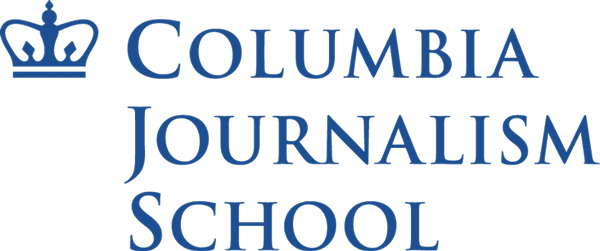At Columbia University, like many colleges across the globe, the most recent events of the Israel-Palestine conflict have wrought increased tension on campus. The Oct. 7 surprise attack by Hamas militants on the Gaza Strip, including the bombings of the al-Ahli Hospital in Gaza City nearly two weeks later, have exacerbated preexisting strains on campus.
On Oct. 25, Students for Justice in Palestine (SJP) and Jewish Voice for Peace (JVP) jointly hosted a walkout to reiterate their three demands to the university first announced at a protest two weeks earlier. The two organizations are calling for the university to adequately address the Palestinian community, divest from companies supporting Israeli apartheid, and cancel the opening of the Tel Aviv Global Center and the dual-degree partnership with Tel Aviv University.
Columbia has not met any of the three demands.
Students Supporting Israel (SSI) drew out the pro-Israel Jewish community to counter-protest as well as non-Jewish pro-Israel advocates at both events, each of which drew hundreds of pro-Palestine protesters. During the walkout, pro-Israel counter-protesters flanked Low Steps and waved Israeli flags. Some booed and attempted to interrupt speakers.
“Did anyone bring pepper spray?” said one of the counter-protesters.
“No, but I should’ve,” said another.
At the protest two weeks earlier, on Oct. 12, Yonah Hain, the campus rabbi, mediated aggressive counter-protesters, some of whom began chanting “baby killers,” with one shaming pro-Palestine protesters for covering their faces.
Pro-Palestine students across the country have faced steep consequences for pro-Palestine sentiments. Some have been doxed, and two Columbia Law students had job offers rescinded. More than half of the pro-Palestine protesters at both events covered the bottom halves of their faces with keffiyehs–square-shaped cotton scarves traditionally worn around the neck and head–to avoid identification.
In an email sent to Columbia affiliates on Nov. 1, university president Minouche Shafik announced the formation of a Task Force on Antisemitism to “identify practical ways for our safety and inclusion work to enhance support for all members of the Columbia, Barnard, and Teachers College communities, particularly our Jewish students.”
In a briefer follow-up email 2.5 hours later, Shafik announced the creation of a Doxing Resource Group to “serve as a centralized point of contact for issues related to doxing, harassment, and online security.” While the Task Force on Antisemitism was signed by President Shafik, President Rosenbury of Barnard College, and President Bailey of Teacher’s College, President Bailey did not sign the letter on the Doxing Resource Group.
Shafik has faced considerable criticism, both through op-eds and protest chants, for what these critics say is a disproportionate acknowledgment of harms that Palestinians have faced since Oct. 7.
Here are images that show recent demonstrations on Columbia University’s campus (Credit: Julia Coccaro):
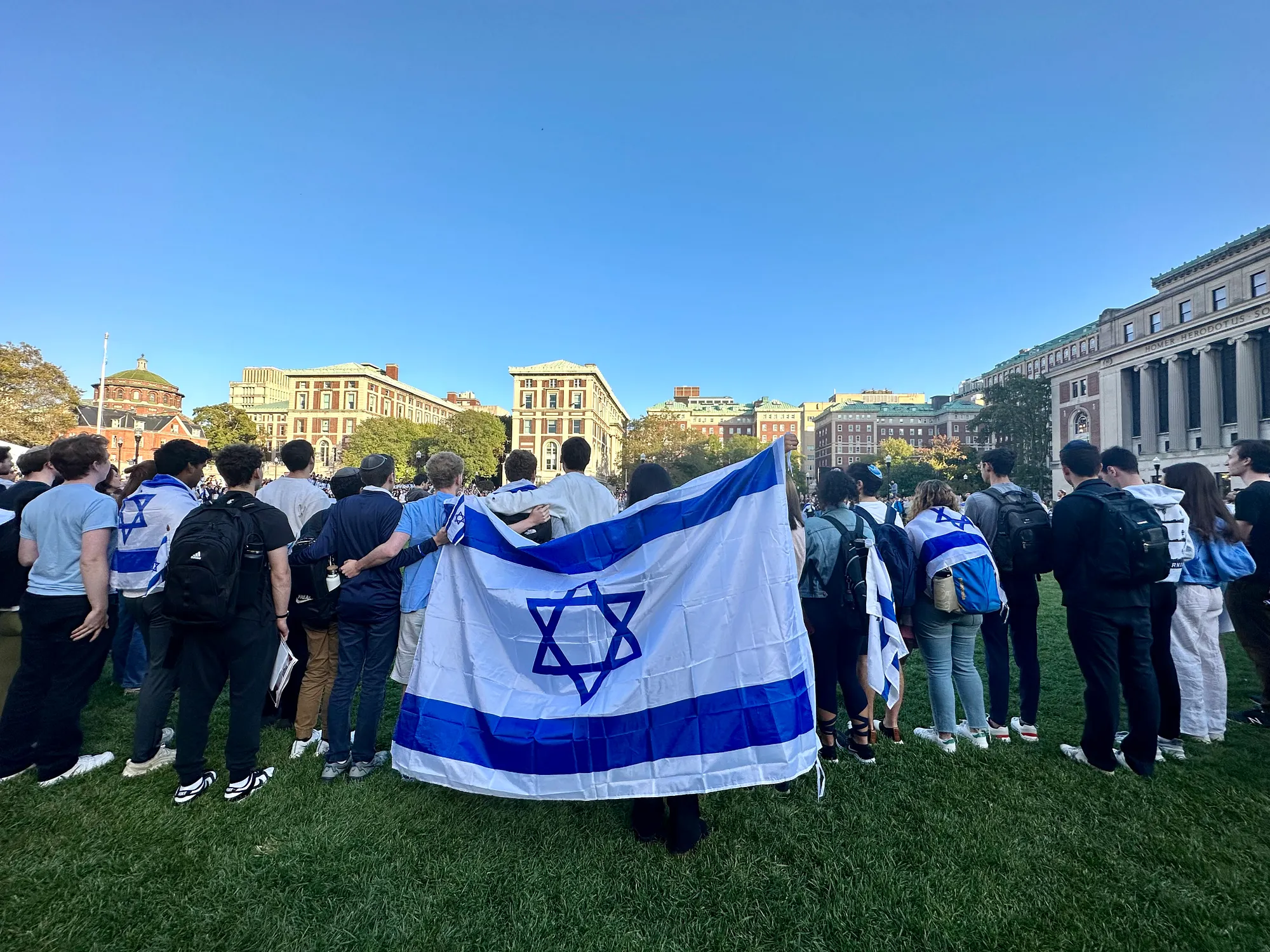
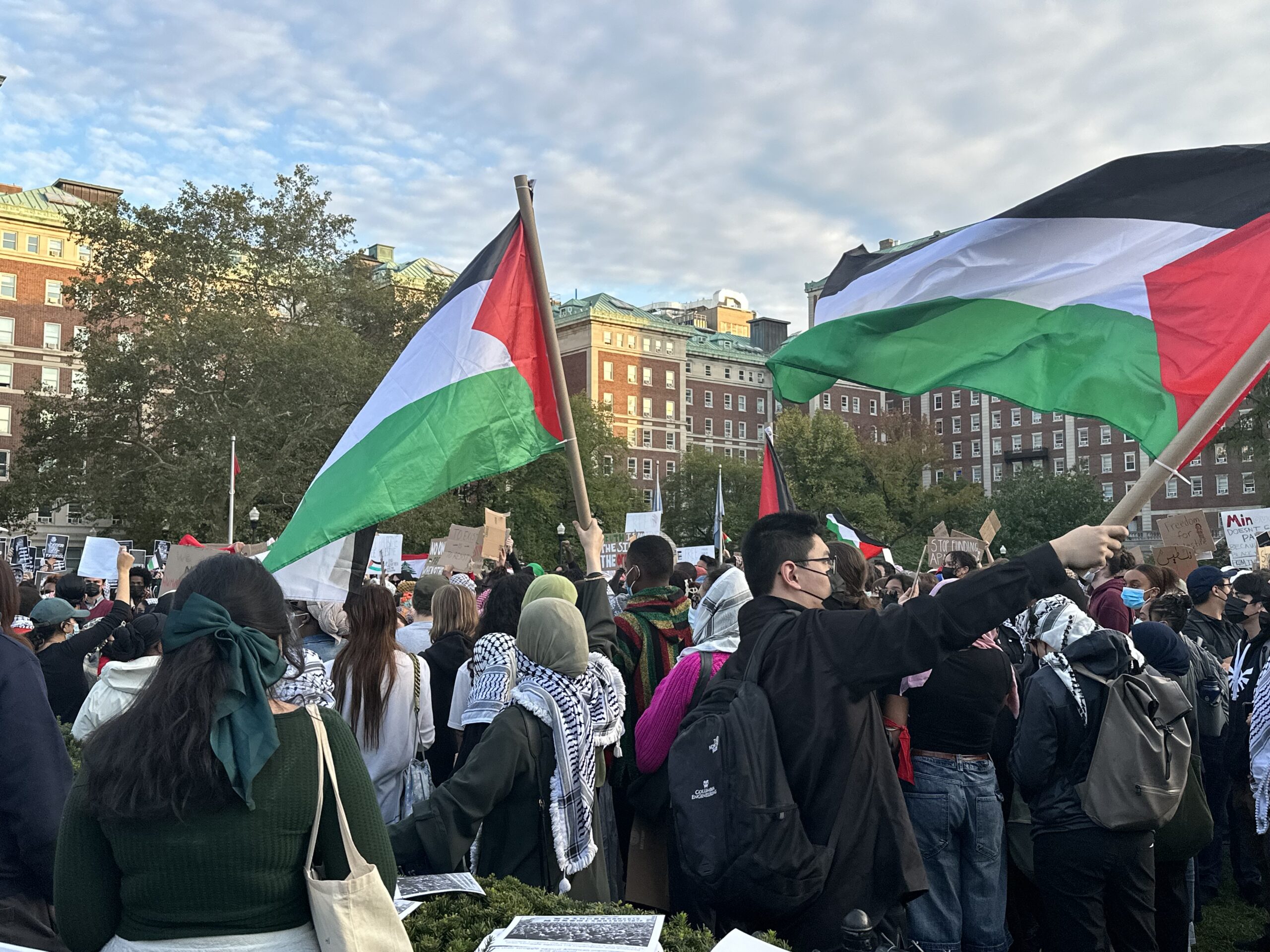
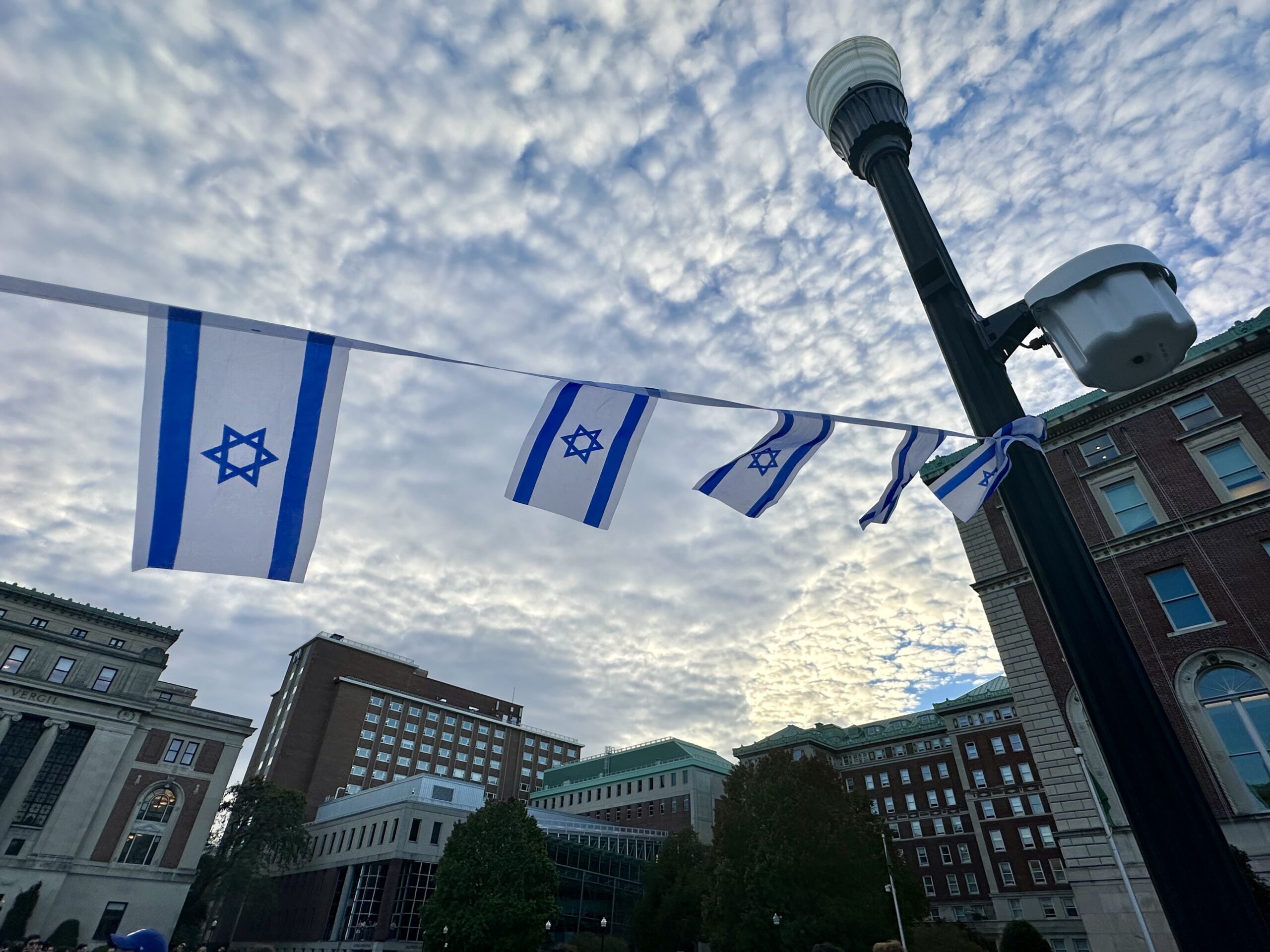
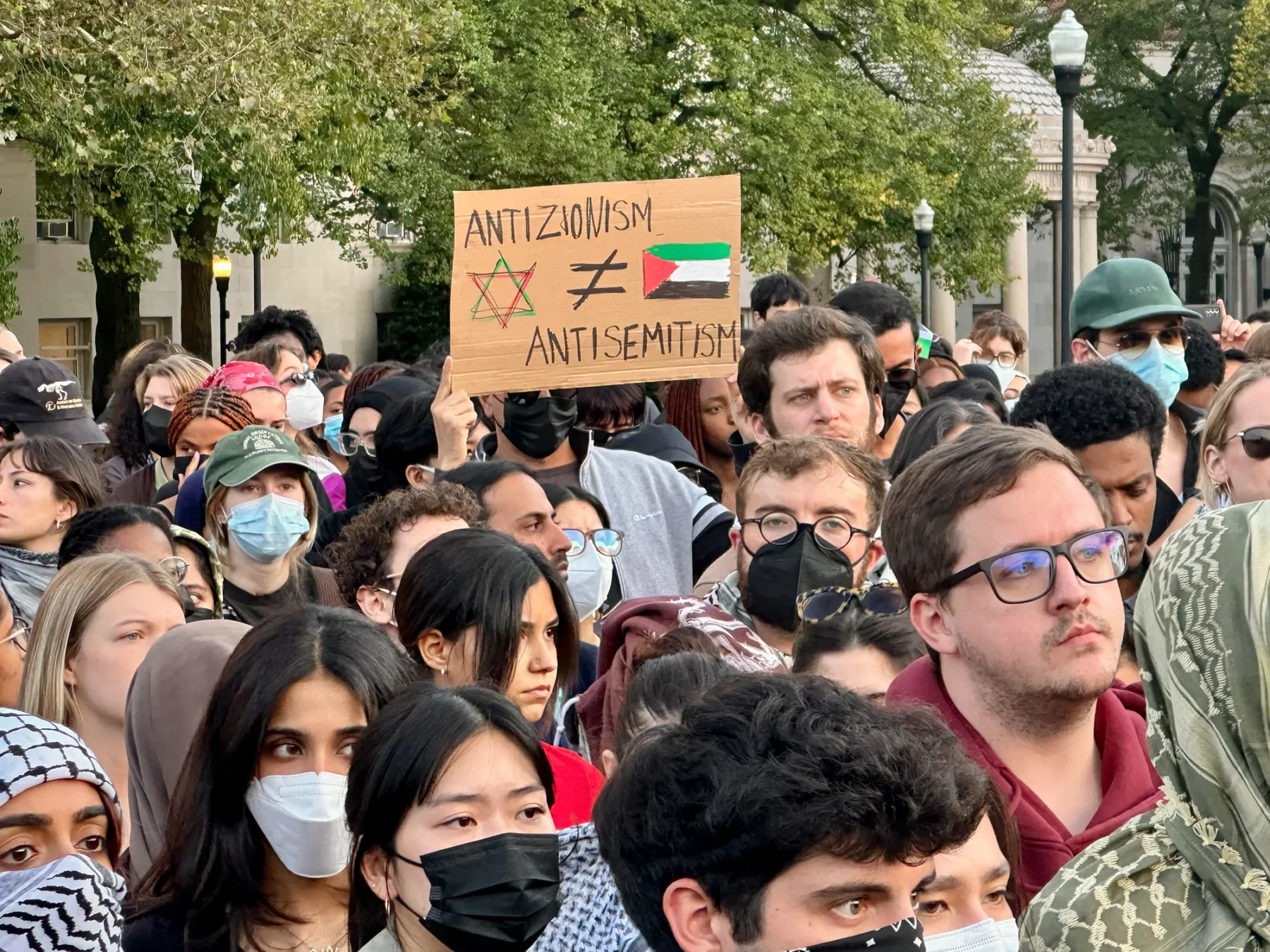
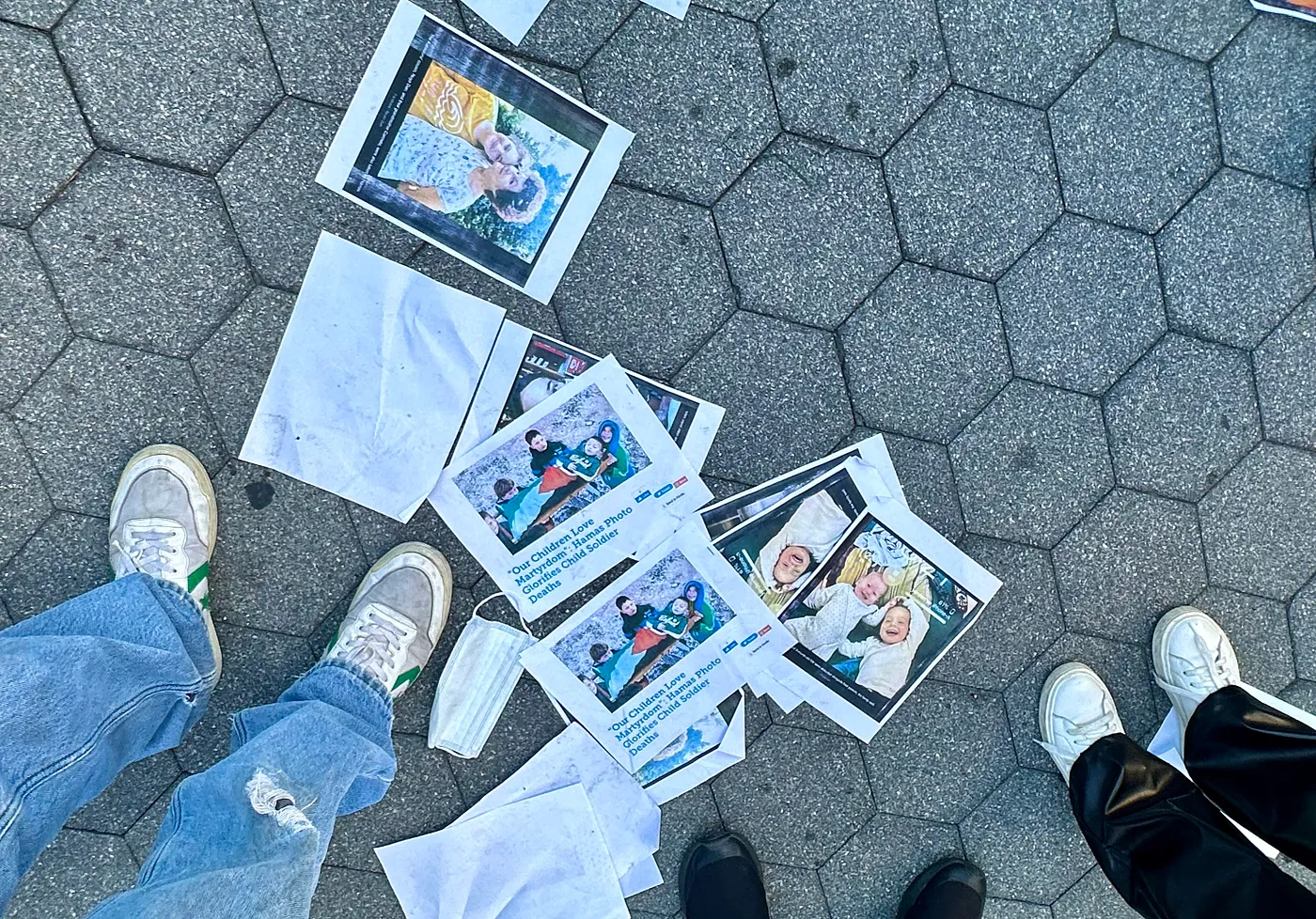
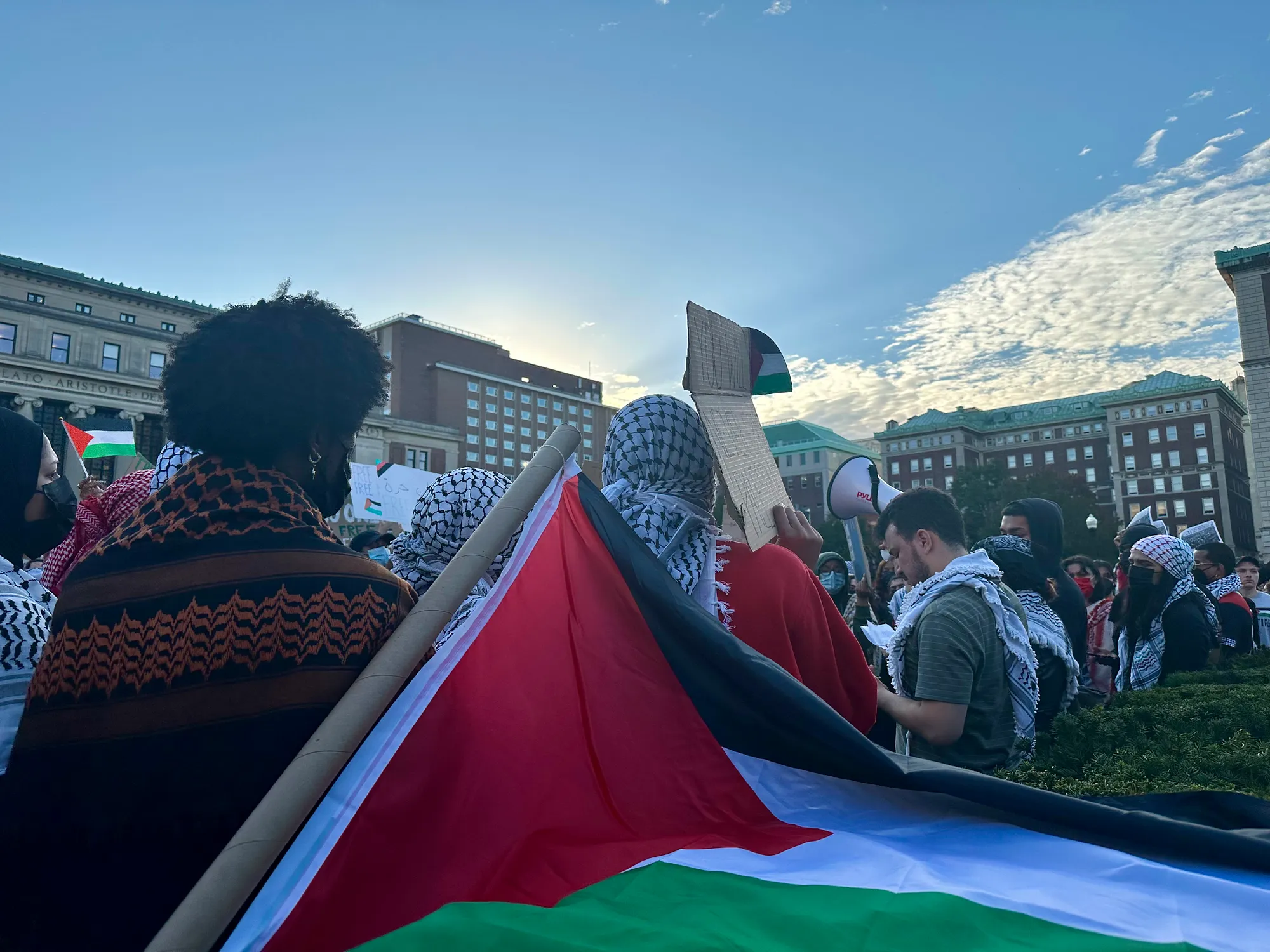
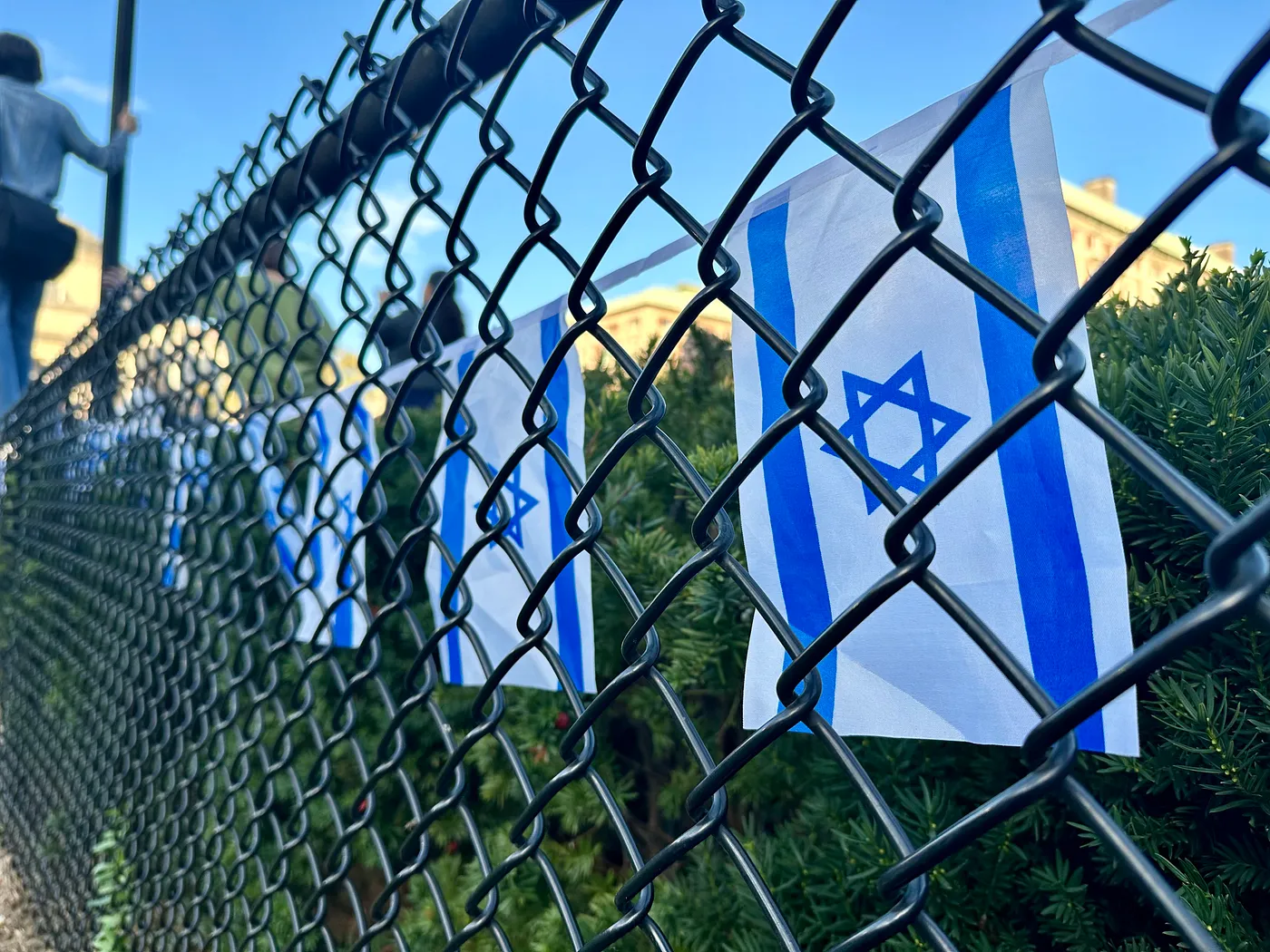



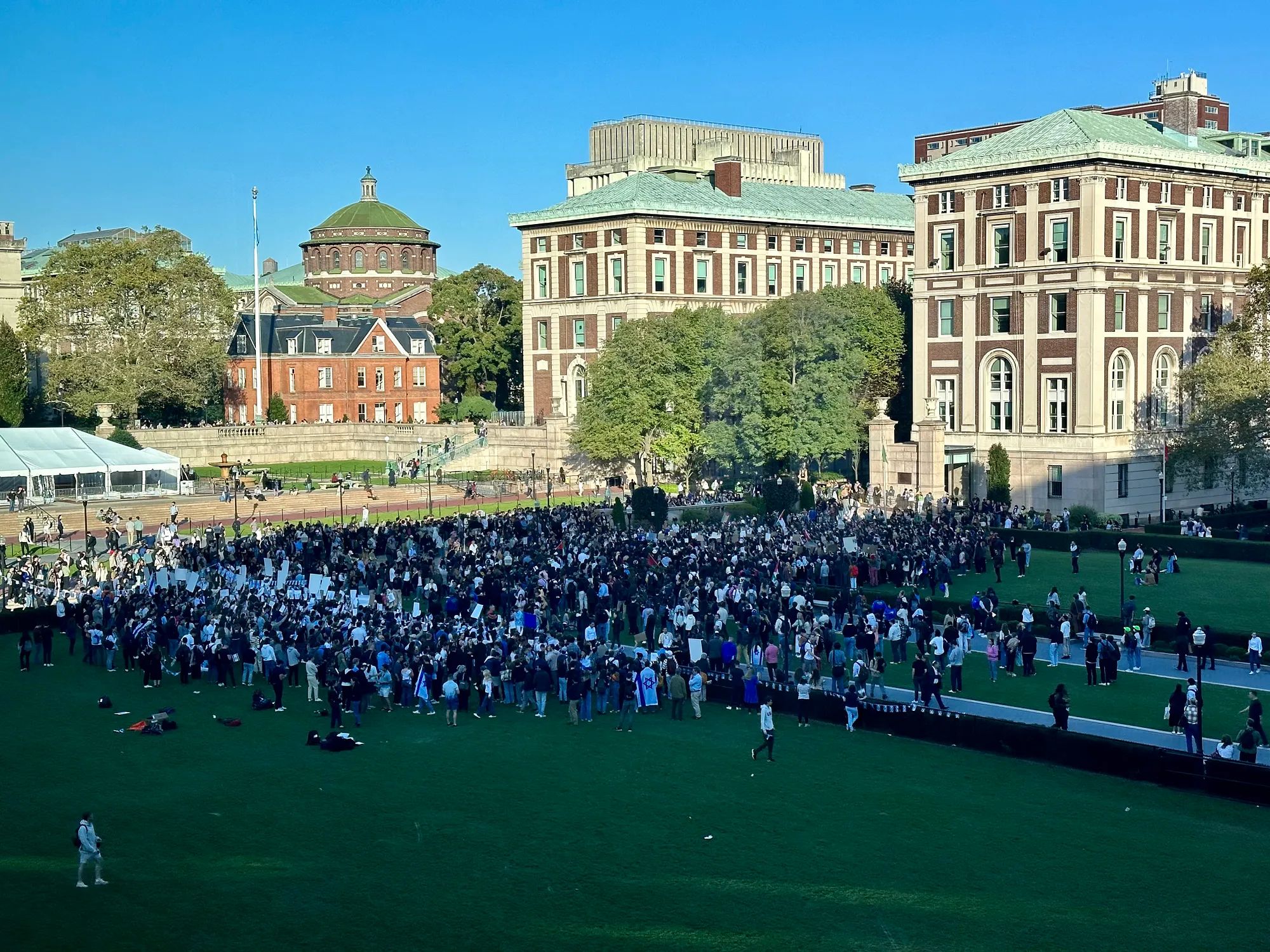
About the author(s)
Julia Coccaro is a sociologist and currently a fellow at the Toni Stabile Center for Investigative Journalism at Columbia University.

